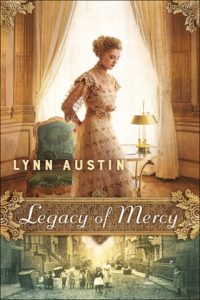What inspired you to write about characters in this period and place?
 I lived in the Chicago area for more than twenty years and I find its history fascinating. In a way, it’s a new city—almost completely rebuilt after the Great Fire of 1871. It doesn’t have the long history of places like New York City or New Orleans, and any newcomer can start with nothing and become a millionaire in Chicago.
I lived in the Chicago area for more than twenty years and I find its history fascinating. In a way, it’s a new city—almost completely rebuilt after the Great Fire of 1871. It doesn’t have the long history of places like New York City or New Orleans, and any newcomer can start with nothing and become a millionaire in Chicago.
I also love the “Gilded Age” when houses were ostentatious, and women wore elegant gowns, and the wealthy had scores of servants. It looks so wonderful from the outside, but women of that era faced so many limitations.
I’ve always wondered if I would really enjoy all that wealth and elegance if my only role in life was to be a pretty ornament on my husband’s arm. That’s what fascinates me most about this era—how does a woman find a sense of purpose in a frivolous age?
When setting out to write a novel, which comes to you first—the time, the place, or the characters?
I usually begin my novels with a certain time period or historical event in mind. As I delve into the research (including travel to the book’s setting, whenever possible), I figure out the setting for the novel.
In the process, I find that my characters start forming in my mind. I flesh them out by creating resumes for them with all sorts of background information. When the characters begin to “speak” to me and I hear their “voices,” I know I’m ready to start writing.
At this point, I don’t have a clear outline of the plot in mind. I simply begin writing and see what happens next.
What kind of research did you do to get the details in Legacy of Mercy right?
 I spent a lot of time reading about manners and customs among the wealthy during the Gilded Age, when the story takes place. Society demanded strict adherence to rituals, such as afternoon teas and calling cards.
I spent a lot of time reading about manners and customs among the wealthy during the Gilded Age, when the story takes place. Society demanded strict adherence to rituals, such as afternoon teas and calling cards.
I had explored these details in earlier novels, such as A Proper Pursuit, and more recently in Where We Belong, so it was fun for me to revisit them. Mind you, I would have gone bonkers if I had to live with so many restrictions—especially the rules that say a married woman must turn over all the decision-making to her husband.
REVEALED: Lynn outlines how her historical research sparked the ideas for these novels. Click through to continue the interview!


